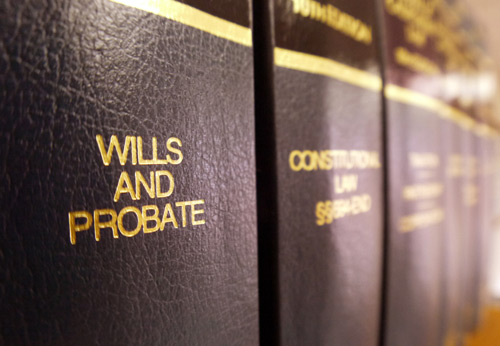Singer and television personality Marie Osmond recently announced she would not be leaving her fortune to her children. Individuals are free to incorporate decisions to disinherit heirs, as Marie Osmond did, in their estate plans; however, this often leads to litigation after the individual passes away. Litigation over an estate can be particularly difficult and expensive because the person with the most direct knowledge about the estate – the decedent – is no longer alive to testify. What are some practical steps to avoid or mitigate the risk of litigation? Make Your Estate Plan Known A testator (individual making a will or providing a legacy) seeking to disinherit…
-
-
WHAT IS A WILL CAVEAT?
A will caveat is a special proceeding in which parties can challenge the validity of a document purporting to be the last will and testament of the decedent. The question to be answered is whether the purported will is valid. As a result, admissible evidence and potential remedies are limited to a determination of that question. Initiating Steps A caveat proceeding is initiated when an individual (the “decedent”) dies, leaving behind a document purporting to be his or her will. The purported will is submitted to the clerk of court to be probated. Any interested party – any party with a pecuniary or beneficiary interest in the decedent’s…
-
Testamentary Capacity and Undue Influence
In 2015 and 2016, media magnate Sumner Redstone amended his trust, which was challenged by former companion Manuela Herzer. A California court recently ruled that Mr. Redstone possessed the required mental capacity to amend his estate plan. In North Carolina, whether an individual is a billionaire business mogul or anyone else, the requirements for testamentary capacity, or the required mental capacity to create a will or a trust, is the same. Testamentary Capacity To have testamentary capacity a person must be “of sound mind, and 18 years of age or over[.]” In practice, this means that the person creating the will, otherwise known as the testator, must be able to…
-
Caveat to a Caveat to a Will: North Carolina Court of Appeals Offers Non-Binding Opinion
In October the North Carolina Court of Appeals issued an unpublished opinion addressing the circumstances under which it is appropriate to grant a motion to dismiss in the context of a will caveat.[1] A caveat is a legal challenge to the probate of a will when there is confusion or disagreement as to the interpretation of the will. The three issues addressed were: (1) can a caveat challenge only a part of a will; (2) can an executor who presents a will for probate later file a caveat; and (3) can one who accepts a benefit under a will later challenge its validity via caveat?…



